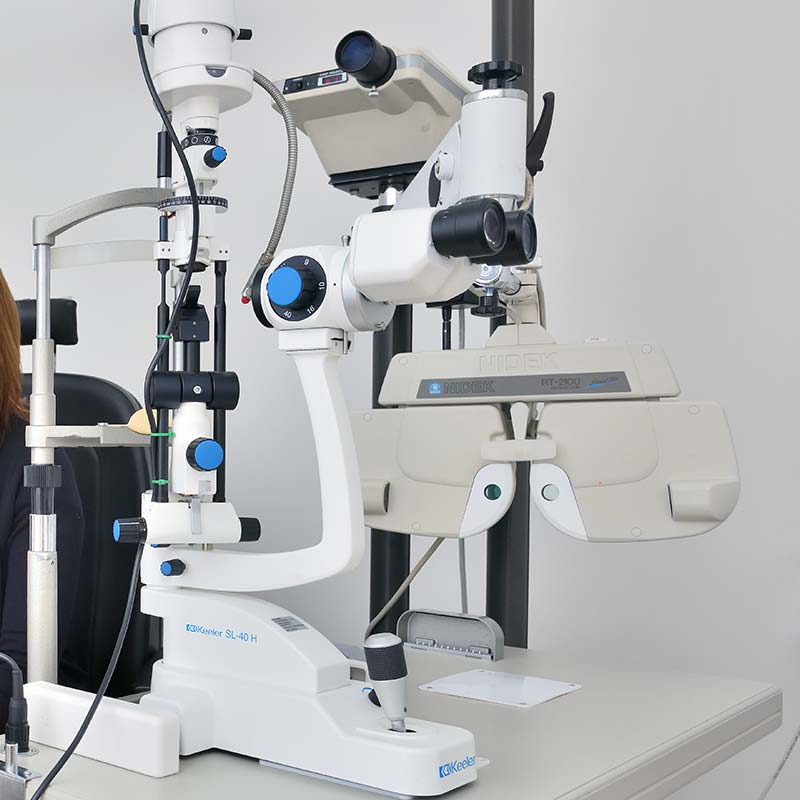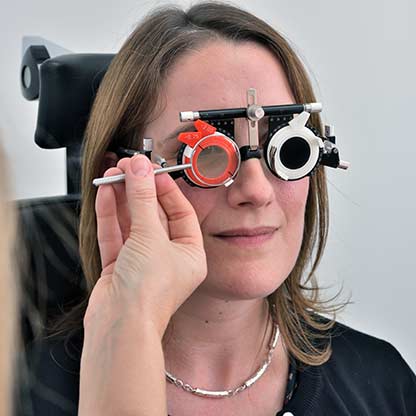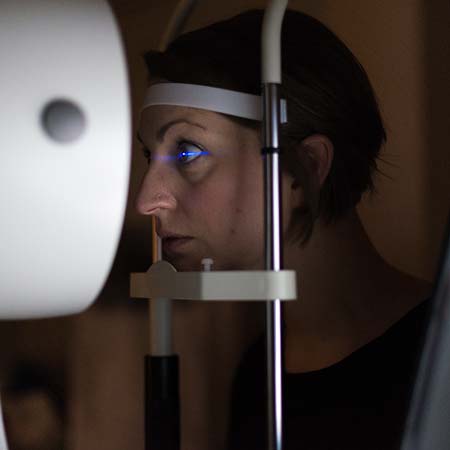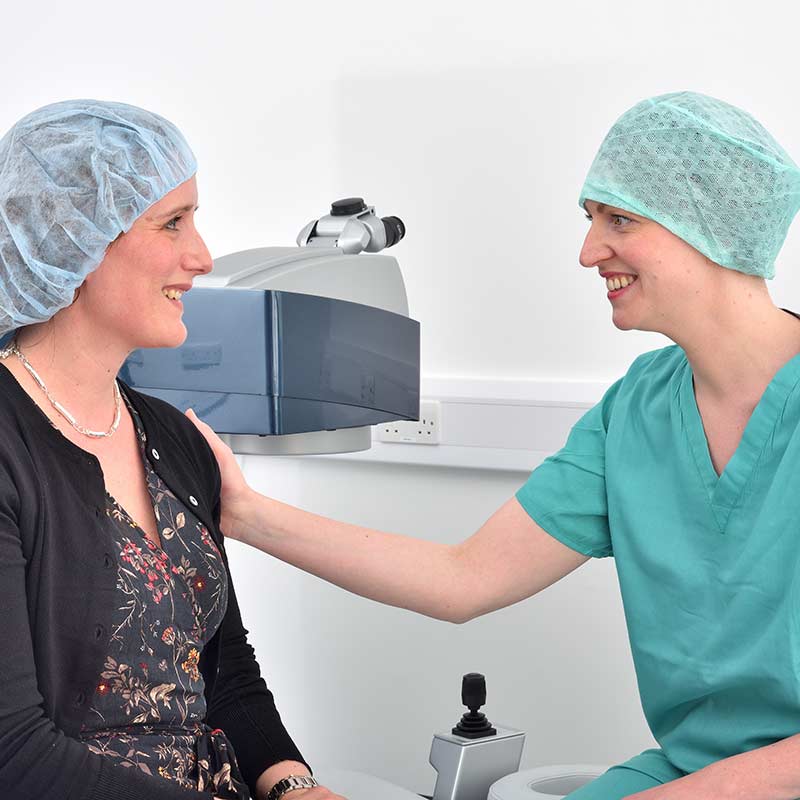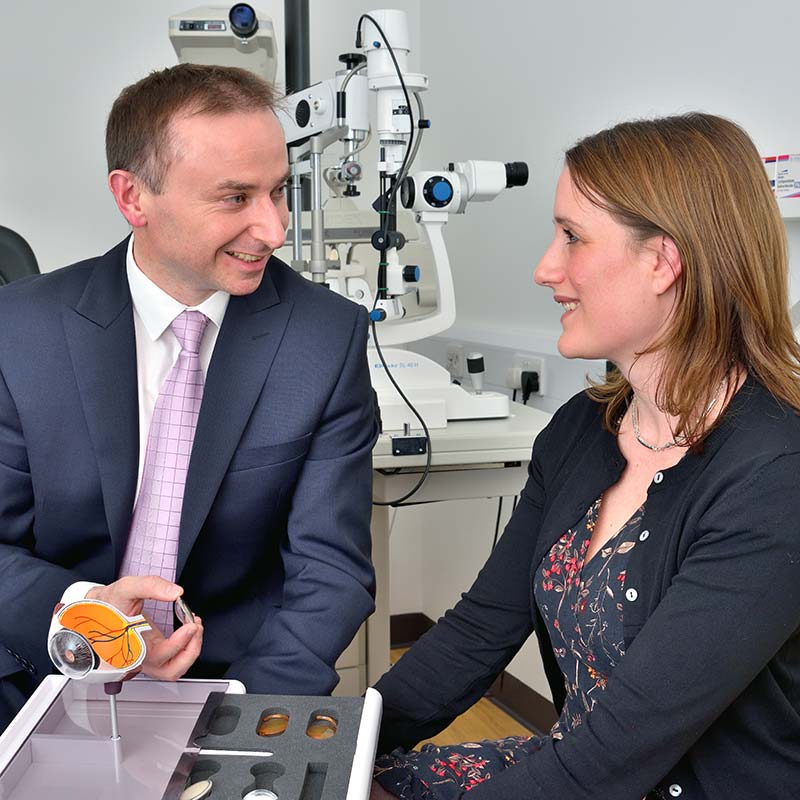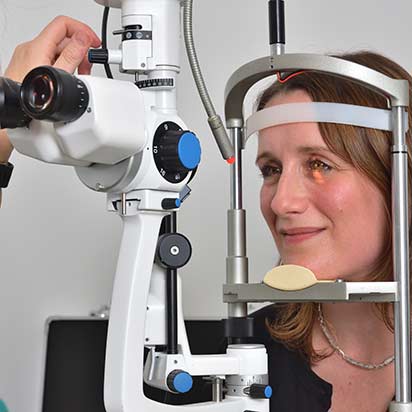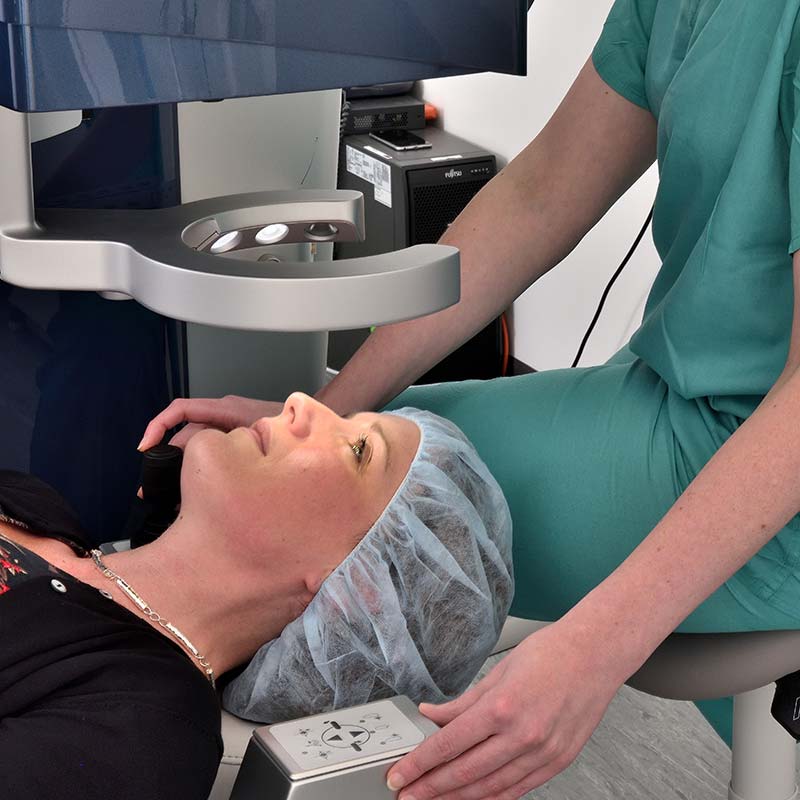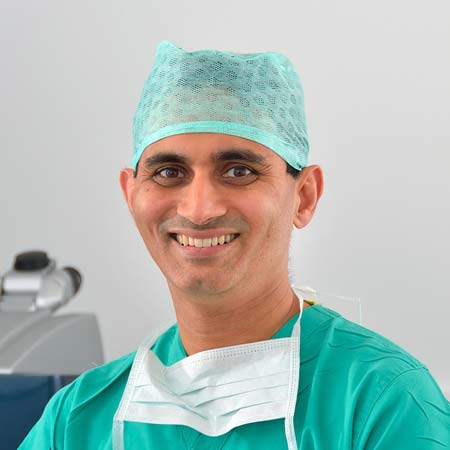Keratoconus is a common condition that normally affects young adults and causes progressively worse short-sight and astigmatism. Treatment includes a type of laser eye surgery called collagen cross linking, or corneal graft surgery.
If you have keratoconus, your cornea (the clear window at the front of the eye) becomes thinner and more curved than it should be. As a result, your vision may be blurred and distorted during your teenage years, and then stabilize later into adult life.
In the early stages of keratoconus, wearing glasses can help you see properly. Then as time goes on, you’ll probably find contact lenses are more effective. If your keratoconus advances, you might find contact lenses also become ineffective and you may need corneal graft surgery. Keratoconus does not usually lead to blindness, although many people with keratoconus find it difficult to lead a normal life without glasses, contact lenses or corrective surgery.
